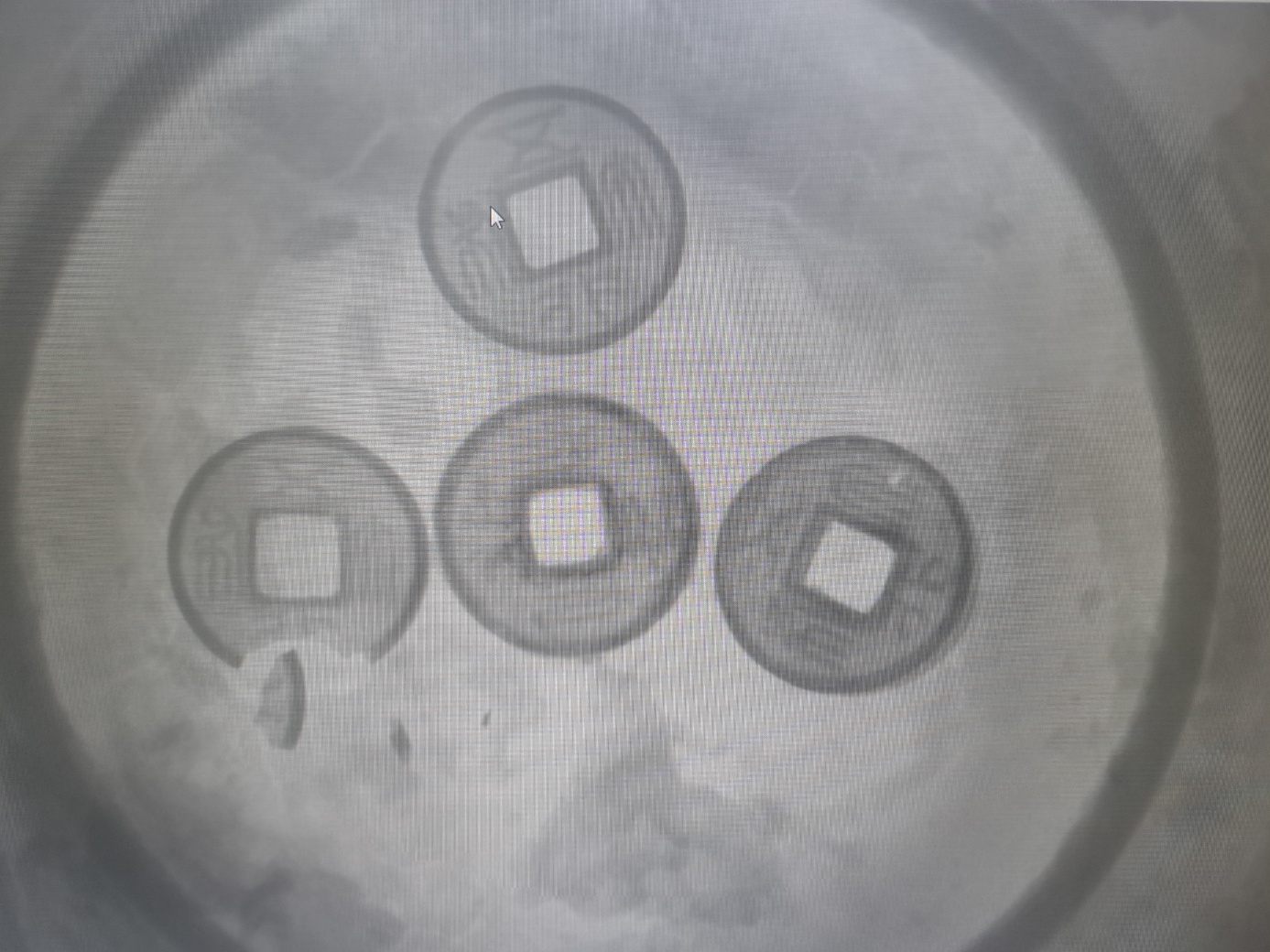
South Korean archaeologists have discovered five "wǔ xíng dà bù 五行大布", a Chinese Northern Zhou-era coin deliberately buried in a jar in Iksan, North Jeolla Province, which is believed to have been a large city comparable to the capital at the end of the Baekje Dynasty in the Three Kingdoms period.
<Location of discovery>
전라북도 익산시 금마면 서고도리 373-16
전라북도 익산시 금마면 서고도리 373-16
www.google.com
The coins were placed in the shape of a cross inside a covered jar, which was found in a pit (104 centimeters long, 91 centimeters wide, and 34 centimeters deep) near the entrance facility of a dwelling site.


The investigation team presumed that they was deliberately paid for some kind of ritual to suppress the evil energy of the earth and boost its good energy.
It seems more likely that these coins were money paid to purchase land to build a house from the gods in charge of the underworld, or that the pot were so-called placenta jar for storing the wombs of children.

The "wǔ xíng dà bù" is a coin minted in the third year (574) of Jiàndé (建德, 572-578) during the reign of Emperor Wu, the third emperor of Northern Zhou.
This discovery is evaluated as an important data supporting that Baekje actively exchanged not only with the Southern Dynasties but also with the Northern Dynasties.




*** related article ***
북주시대 동전 오행대포五行大布 익산 서동생가터에서 발굴
북주시대 동전 오행대포五行大布 익산 서동생가터에서 발굴
전북 익산시 금마면 서고도리 373-16 일원 이른바 서동생가터 유적 정비 과정에서 중국 북주北周시대 동전인 ‘오행대포五行大布’ 5점이 열십十자 모양으로 뚜껑이 덮힌 ‘직구단경호直口短頸
historylibrary.net
'NEWS & THESIS' 카테고리의 다른 글
| 물고기 새뼈 드러낸 창녕 계성고분 (0) | 2023.10.15 |
|---|---|
| ‘창녕 계성고분군 1호분 발굴성과 공개 (0) | 2023.10.15 |
| 21~22일 전곡선사박물관 전곡구석기축제 (0) | 2023.10.14 |
| 박서보 선생을 추억하며 (0) | 2023.10.14 |
| 국립해양문화재연구소의 독특한 홍보 방식 (0) | 2023.10.13 |




댓글